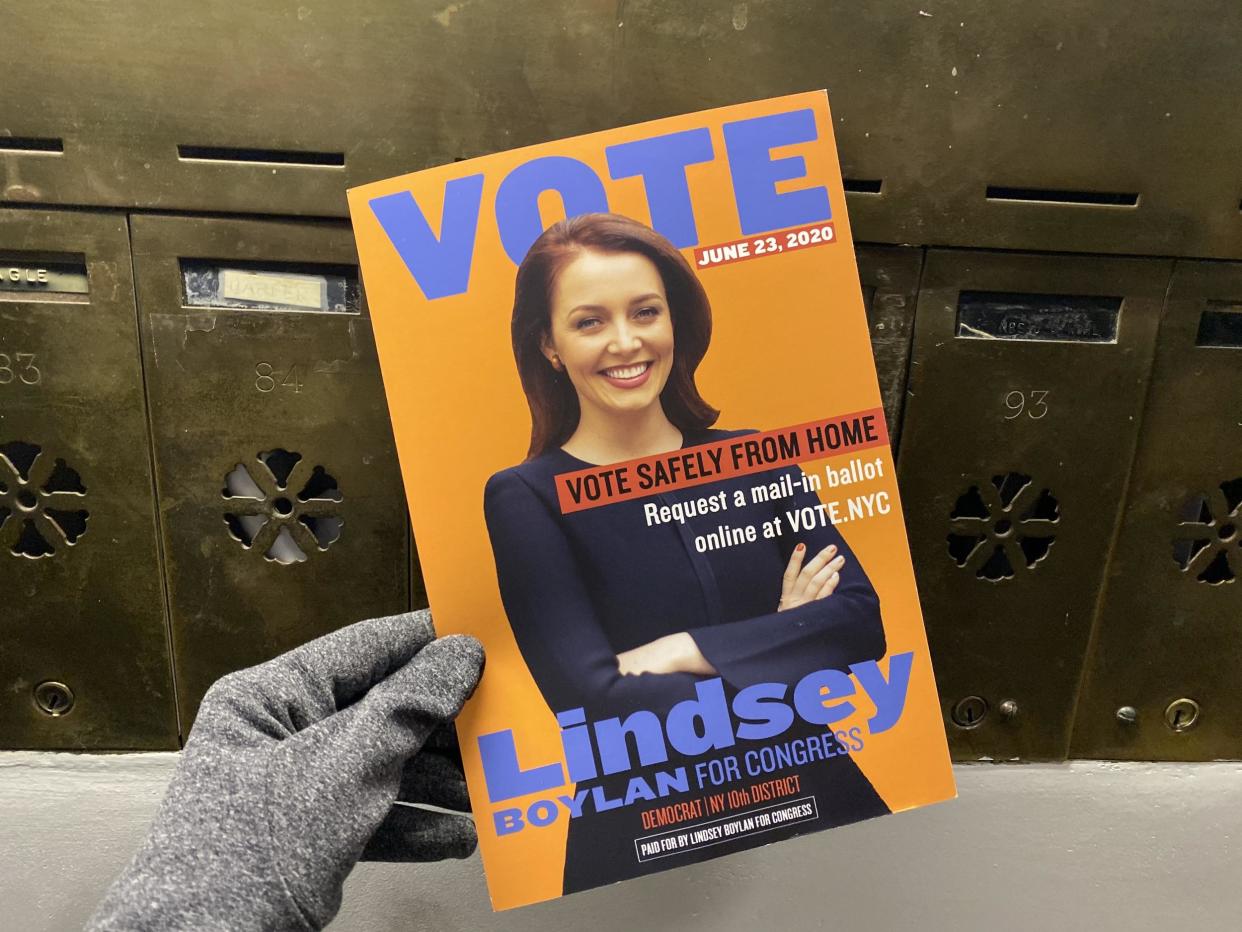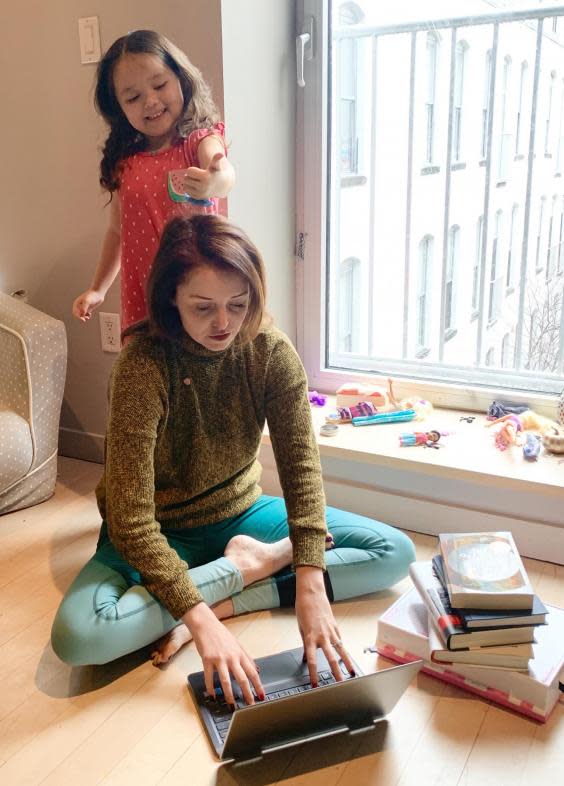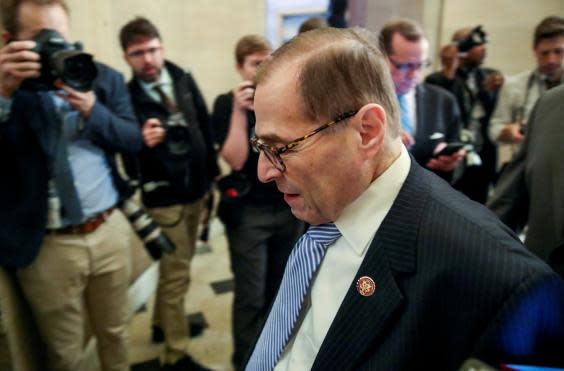Don’t kiss the baby: What it’s like to run for office in the midst of a pandemic

When Lindsey Boylan began her primary campaign a year ago, she knew she faced an uphill battle. Her opponent, Democratic heavyweight Jerry Nadler, was first elected to Congress in 1992 and has been a fixture of New York politics ever since.
But in recent years, progressive candidates have proven adept at challenging the party’s old guard. Insurgent campaigns have won shock victories with strong ground games and community outreach. Ms Boylan’s plan was simple: she was going to outwork her opponent.
Then came the coronavirus, and the 36-year-old newcomer was faced with the prospect of an entirely different campaign to the one she had planned for. As it turns out, running for office in the midst of a pandemic is as strange as it sounds.
“We've shifted in how we connect with people. But I would say if anything, we're connecting even more because people really do need help now,” she tells The Independent from her home, which is now also her campaign headquarters (her team was looking for office space when Covid-19 arrived).
The practical changes that might be needed to address voting in the shadow of the pandemic have been politicised by Donald Trump, who has raged against moves to expand absentee ballots, claiming without evidence that they encourage fraud (research has shown that mail-in voting does not favour one party over the other). On Wednesday he threatened to withhold funding for Michigan and Nevada — both states with Democratic governors — for mailing absentee ballot applications to voters.
Besides the practicalities, there are also questions about how the economic fallout from the coronavirus will change the political debate. Some have speculated that voters may be more willing to accept radical solutions to issues like health care and inequality — that might favour insurgent campaigns.
Ms Boylan’s pitch should be familiar to anyone who paid attention to the wave of successful insurgent challengers who ousted establishment Democrats in 2018 primary races. Perhaps the most well-known of them was Alexandria Ocasio-Cortez (“AOC”), the then 28-year-old activist and former bartender who defeated Representative Joseph Crowley, and Ayanna Pressley, a Boston city council member who beat 10-term incumbent Michael Capuano.
“I started out as a real believer in my party, but something has changed in our national discourse. I just don't think that our party is doing enough to respond to the needs of real people,” says Ms Boylan.
“I am absolutely a progressive, and for me that means someone who's focused on the existential issues of our day, which are extreme inequality and climate change. So where that puts me in line with women like Ayanna Pressley or AOC, I'm all for it.”

At the same time, she says she is a little reluctant to accept the comparison, “not because I don't admire what these women have achieved, but more because when I go to Washington, I know that my biggest job is to represent my community.”
Like those campaigns, Ms Boylan has positioned herself as an antidote to the ineffectiveness and complacency of establishment politics, which she argues is personified by Mr Nadler. She has criticised the 72-year-old chairman of the House judiciary committee for being too timid in his pursuit of impeaching Donald Trump — something the congressman’s campaign has touted as his strength.
Pandemic or no pandemic, Ms Boylan still faces a huge challenge in defeating Mr Nadler. The longtime congressman, known for his civil liberties activism, has already won a number of high-profile endorsements, among them Elizabeth Warren. “His record shows that he doesn’t just know how to fight, he knows how to win,” she said on Tuesday.

Then there is funding. Ms Boylan has raised more than $750,000 so far — an impressive amount for a first-time challenger. According to Politico, much of those contributions came from donors in the financial industry, including "many from employees at investment bank Allen & Company, where her husband works." She donated around $80,000 of that money herself, and has committed to not taking donations from corporate PACs and the fossil fuel industry. But Mr Nadler’s profile will give him a significant advantage in fundraising. According to the last fundraising report, his campaign has raised more than $1 million. How this advantage will play out in the middle of a pandemic is unclear.
Despite the obstacles, Ms Boylan says she just got tired of waiting.
“I really got tired of the way that our political system works. Our politics in this city and this state are largely still run by a small group of men. The biggest generational issues we have are very connected to this public health crisis, things like extreme inequality and climate change,” she says.
“I didn’t not see really anyone who represented me doing enough to respond to either of those things. So I decided to do it myself.”
Read more
Ground Zero: How New York became the epicentre of coronavirus
Seven charts that show the true scale of the UK coronavirus outbreak
‘They can blame it for everything’: What coronavirus means for Brexit
The Americans who think that coronavirus is a hoax
Do you need a face mask and where can you buy one?
UK lockdown: Can I see my family and friends under new rules?

